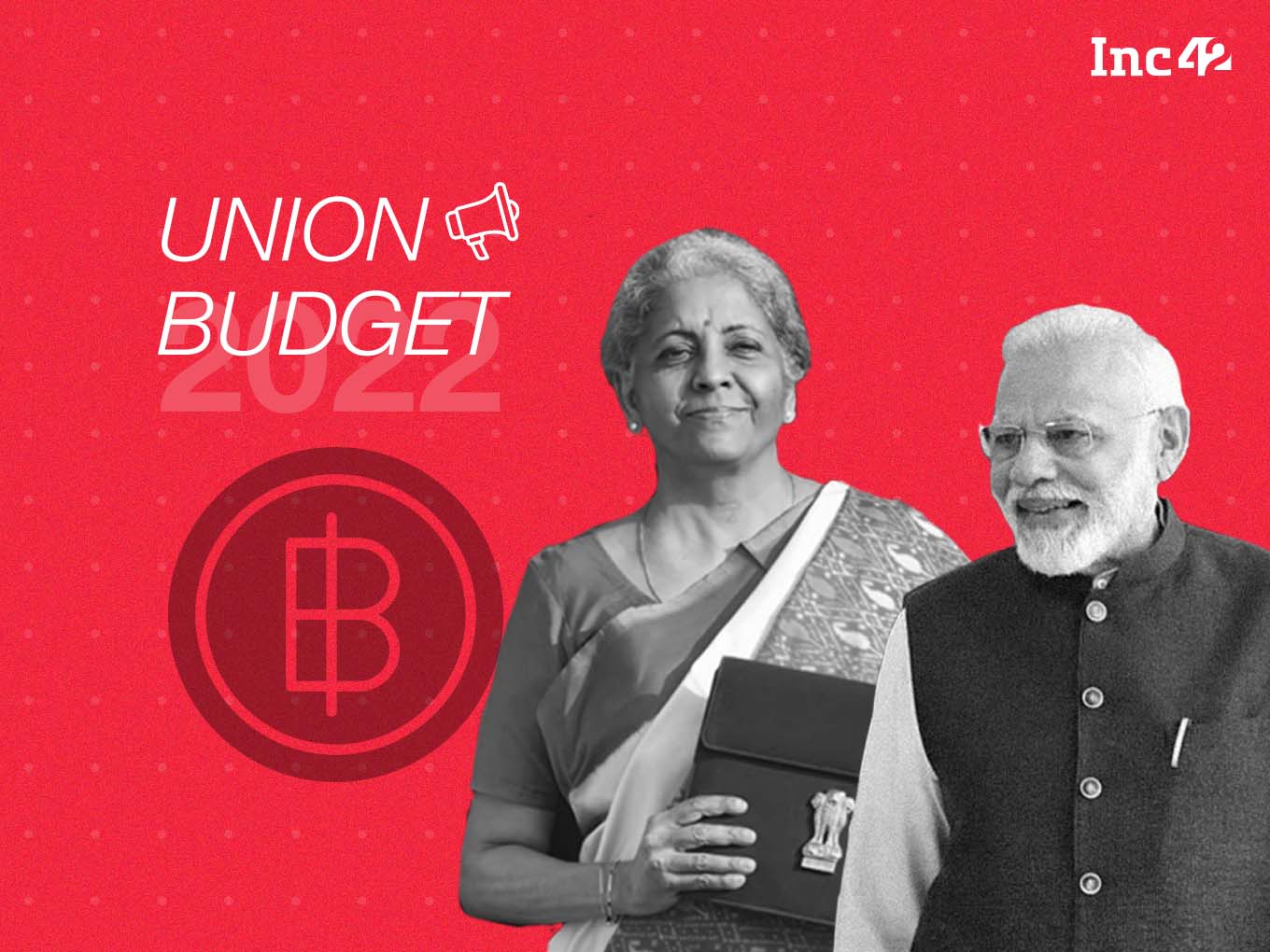
Addressing a slew of confusions around crypto taxation, finance minister Nirmala Sitharaman has proposed a 30% tax on income from digital assets. The move is referred to be in sync with the budget expectations of the crypto industry. By far, this is the highest tax band introduced in the country.
Announcing the scheme for the taxation of digital assets, Sitharaman said, “There has been a phenomenal increase in virtual digital assets. The magnitude and frequency of these transactions have made it imperative to provide a specific tax regime. Accordingly, For the taxation of virtual digital assets, I propose to provide that any income from the transfer of any virtual digital asset shall be taxed at the rate of 30%.”
She further added that no deduction in respect of any expenditure or allowance shall be allowed while computing such income except the cost of acquisition. Further, the loss of transfer of digital assets can not be set off against any other income. Further, in order to capture the transaction detail, I also propose to provide for TDS on payments made in relation to the transfer of virtual digital assets at the rate of 1% of such consideration about a monitory threshold.
The Crypto Industry Welcomes The Move
The move has largely been welcomed by the industry. Nischal Shetty, founder and CEO of Binance-owned crypto exchange WazirX said, “The tax clarity is a welcome move. Overall, it’s a huge relief to see that our government is adopting the progressive stance of going ahead in the direction of innovation. By bringing in taxation, the government legitimises the industry to a large extent. The majority of people, especially corporates, who have been sitting on the sidelines because of uncertainties will now be able to participate in crypto. Overall, it’s a positive move for the industry.”
Seconding Shetty, Sumit Gupta, cofounder of crypto unicorn CoinDCX said, “Taxation of Virtual Digital Assets or Crypto is a step in the right direction. It gives much-needed clarity and confidence to the industry. India’s focus on digital innovation and the promotion of blockchain technology is welcome.”
Swapnil Pawar, founder of blockchain-based investment platform ASQI said that taxing of gifts and TDS are also useful to reduce abuse of anonymity in the crypto domain. “We believe that the future of crypto innovation is in KYC-compliant transactions in legally recognized tokens,” he said.
With 20 Mn or so Indians actively involved, cumulative investments in cryptocurrencies in the country jumped from $1 Bn in 2013 to more than $10 Bn in November 2021, according to crypto intelligence and research platform CREBACO.
The step has definitely brought crypto closer to the regulations, rather than imposing a blanket ban on it.
The post India Introduces Crypto Tax! Puts 30% Tax On Income From Digital Assets appeared first on Inc42 Media.





![Read more about the article [Funding alert] Backpacker hostel startup goSTOPS raises $1M in pre-Series A round led by IAN, Yuj Ventures](https://blog.digitalsevaa.com/wp-content/uploads/2021/07/Imagev3wm-1625732000117-300x150.jpg)



